Search Results
Showing results 61 to 80 of 109
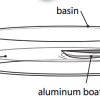
Boats Afloat
Source Institutions
In this activity, learners discover what buoyancy is and determine the characteristics that make an object buoyant. Learners design, build, test, and evaluate boats made from a variety of materials.

Exploring Forces: Gravity
Source Institutions
In this nanoscience activity, learners discover that it's easy to pour water out of a regular-sized cup, but not out of a miniature cup.
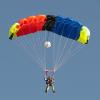
Design a Parachute
Source Institutions
After a discussion about what a parachute is and how it works, learners create parachutes using different materials that they think will work best.
Butterflies in Space
Source Institutions
The Butterflies in Space Teacher's Guide uses "life in space" to encourage learners to conduct their own open-ended scientific investigations.
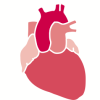
What is Blood Pressure?
Source Institutions
In this activity about heart health (on page 34 of the PDF), learners measure their own blood pressure using an electronic blood pressure monitor with a self-inflating cuff (included in cost of materi

Moving On Up: Capillary Action 1
Source Institutions
Over the course of several days, learners explore the property of water that helps plants move water from roots to leaves or gives paper towels the capacity to soak up water.
Dollar Bill Grab
Source Institutions
In this demonstration, learners observe as two cola bottles and a dollar bill are arranged in a specific order: one bottle, upside down and filled with water, is placed on top of another bottle, with
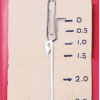
Rubber Band newton Scale
Source Institutions
In this activity, learners make a simple spring-like scale using a rubber band instead of a spring, and calibrate the scale in newtons (N).
Build A Hydrometer
Source Institutions
In this activity, learners will explore how a hydrometer works by building a working model and conducting experiments.
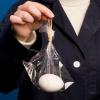
Egg Bungee
Source Institutions
Learners attach an egg to a rubber-band bungee cord and drop the egg.
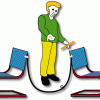
Raceways
Source Institutions
In this activity, learners build a model roller coaster to help the Mummy entertain the Atom's Family monsters. Learners assemble the roller coaster between two chairs using vinyl ceiling molding.
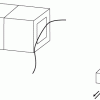
Physics in the Toy Room: Toppling Towers
Source Institutions
In this physics activity, learners use square blocks to explore how towers fall. Learners attach a piece of string to the side of a block and then construct a tall tower on top of this base block.
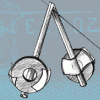
Zip Line
Source Institutions
In this design challenge activity, learners build a device to carry a Ping-Pong ball from the top of a zip line to the bottom in four seconds (or less!).
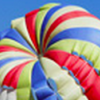
Parachute Parade
Source Institutions
In this engineering activity, learners design parachutes to give toy figures safe landings. This activity is great for practicing an important STEM skill--changing only one variable at a time.
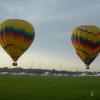
Convection Demonstration
Source Institutions
In this quick activity (located on page 2 of the PDF under GPS: Balloon Fiesta Activity), learners will see the effects of convection and understand what makes hot air balloons rise.
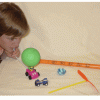
What is Energy?
Source Institutions
In this exploratory activity, learners experiment, observe and determine how various toys change from one form of energy to another.
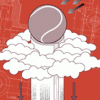
High Rise
Source Institutions
In this design challenge activity, learners build a tower that can support a tennis ball at least 18 inches off the ground while withstanding the wind from a fan.
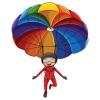
Which Parachute
Source Institutions
In this activity, learners will engineer three different parachutes to test how well each one works.
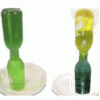
Inverted Bottles
Source Institutions
In this activity, learners investigate convection by using food coloring and water of different temperatures.
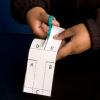
Make and Fly a Helicopter
Source Institutions
Learners follow the template to build and fly a paper helicopter.
